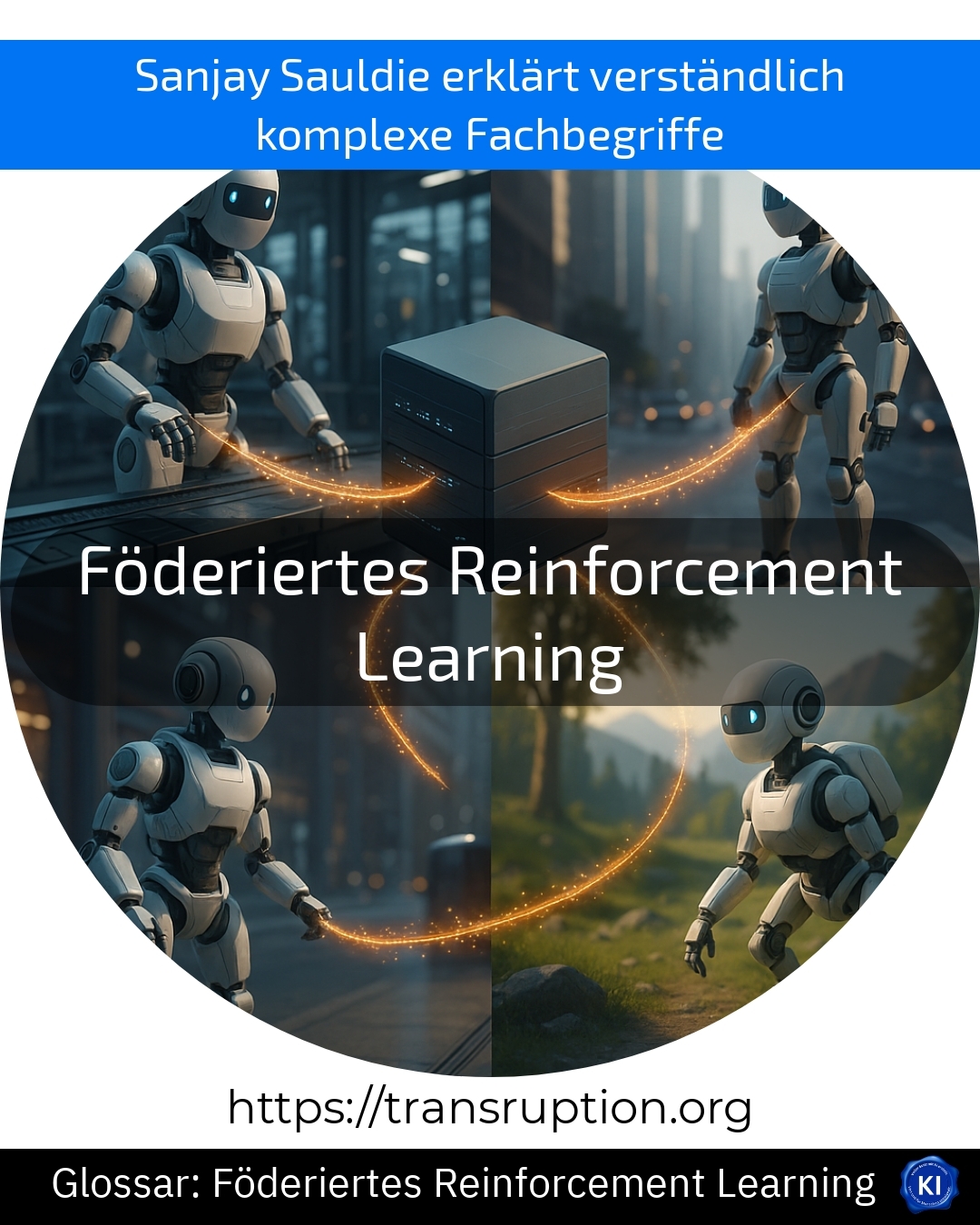Federated reinforcement learning is primarily used in the fields of artificial intelligence, big data, smart data and automation.
The term describes a special form of machine learning in which different computers, devices or even entire companies learn together from their data without sharing this data with each other. The aim is to train algorithms so that they make optimal decisions through trial and error - in a decentralised manner, i.e. distributed across many different devices. "Federated" means that each participant keeps their own data and only shares what they have learnt with others. This protects privacy and reduces security risks.
An illustrative example: several factories each use their own robots for quality control. With federated reinforcement learning, all robots can learn from each other how to recognise errors better - without the sensitive production data having to be exchanged between the factories.
This makes this method particularly attractive for companies that want to benefit jointly from data but do not want to disclose sensitive company secrets. In this way, many small learning experiences result in major joint progress in the field of automation and artificial intelligence.















